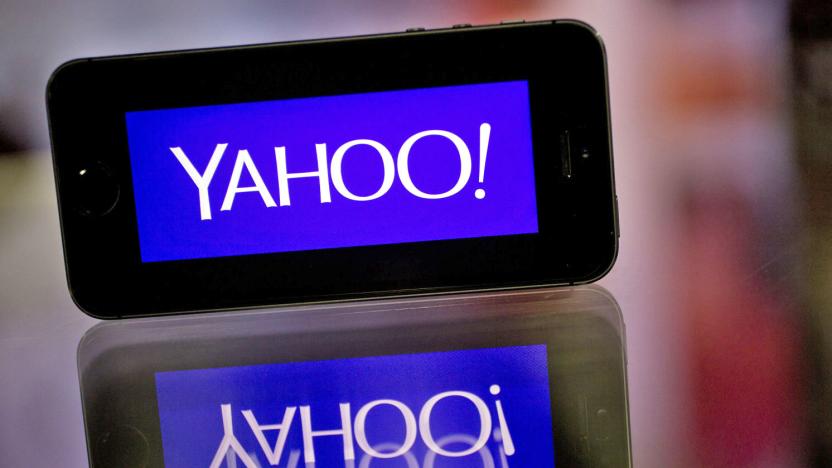fsb
Latest

Hackers broke into a contractor for Russia's spy agency
The Russian government has been linked to a number of high-profile hacks, but it just became a target -- and the data that was stolen says a lot about its apparent goals. A hacking group nicknaming itself 0v1ru$ infiltrated the servers of SyTech, a contractor for the FSB intelligence agency on July 13th. They compromised the firm's Active Directory server and stole 7.5TB of data. The intruders revealed a number of projects that SyTech had been working on for the FSB (and fellow contractor Quantum) since 2009, some of which were pure research while others came to fruition.

Russia balks at US-run OneWeb satellite internet over security concerns
Russia's Federal Security Service (FSB) has thrown a wrench in a planned deal that would bring internet access to the most rural and remote parts of the country, according to Reuters. United States-based startup OneWeb was set to launch a satellite project that would provide an internet network for Russia, but the plans have been delayed over the FSB's concerns that the company will gather intelligence and threaten the country's national security.

Symantec refuses Russia request for source code access
Security firm Symantec will no longer allow Russian authorities to inspect its source code, according to Reuters. "It poses a risk to the integrity of our products that we are not willing to accept," the company's Kristen Batch said. The worry is that by allowing the supposedly independent Federal Security Service (FSB) to examine source code, it would give Russia an inside view of potential software vulnerabilities and exploits.

Russian spies indicted in massive Yahoo account breach
When Yahoo claimed that state-sponsored hackers were behind the 2014 breach that exposed 500 million accounts, it may have been understating the significance of what happened. The Justice Department is indicting four Russians over the intrusion, two of which (Dmitry Dokuchaev and Igor Sushchin) work for the country's FSB intelligence agency -- yes, the US believes two spies were directly involved. This represents the first time that the US has directly charged Russian officials with cybercrimes, rather than targeting professional crooks.

Russia used a cybercriminal's botnet for a spying campaign
It's no secret that the lines between state-sponsored hacking and cybercrime are fuzzy. After all, relying on professional crooks offers plausible deniability if the intruders are ever caught. However, it's now apparent that those lines sometimes disappear altogether. The New York Times reports that Russian intelligence 'piggybacked' on criminal hacker Evgeniy Bogachev's now-defunct botnet, GameOver ZeuS, to conduct spying campaigns in the US and abroad. Between 2011 and 2014, infected computers were asked to search for documents that clearly reflected Russian political interests, including US support for Syrian rebels, Ukrainian operations and English searches for "top secret" and "Department of Defense." Those last queries suggest that there were at least some American government or contractor systems that had been compromised, and they're definitely not what you'd expect from an outfit siphoning bank accounts.

Russia claims it can collect encryption keys
Russia now requires (or at least, appears to require) that local internet providers offer backdoor access to their customers' encrypted messages, and it conveniently has a way to make that happen. Its Federal Security Service now claims that it can collect encryption keys, giving it the chance to crack communications that would otherwise remain private. In theory, this means that even locked down messaging services like Telegram or WhatsApp aren't safe from prying eyes.

Intel's 6-core Dunnington CPU coming this year, Nehalem gets official
Quad-core shmod-core Intel, we need 6 cores or more to keep our uh, web browsers snappy. While you're at it, how about tossing in some Simultaneous Multithreading (SMT) so that each core can process two threads at a time -- 16 simultaneous threads per 8-core processor or 32 for dual-processor, 8-core rigs. If that sounds good then you're in luck; Intel just went official with its near-term architecture plans which include the 2008 launch of a 6-core Dunnington-class server CPU platform based on Intel's 45-nm Penryn "tick" architecture. On deck is Intel's second generation Nehalem "tock" architecture with SMT and scalable from 2- to 8-cores. We're talking "dramatic" performance and energy improvements, according to Intel, from a microarchitecture bent on delivering an 8 MB level-3 cache, DDR3-800 memory support, 25.6GB per second Quickpath interconnects (so long Front Side Bus!), an integrated memory controller and optional integrated graphics to high-end servers and eventually laptops. Hear that AMD? Tick, tock goes the clock. P.S. That's Nehalem pictured. What, can't you tell?[Via BetaNews, thanks Mike O.]


